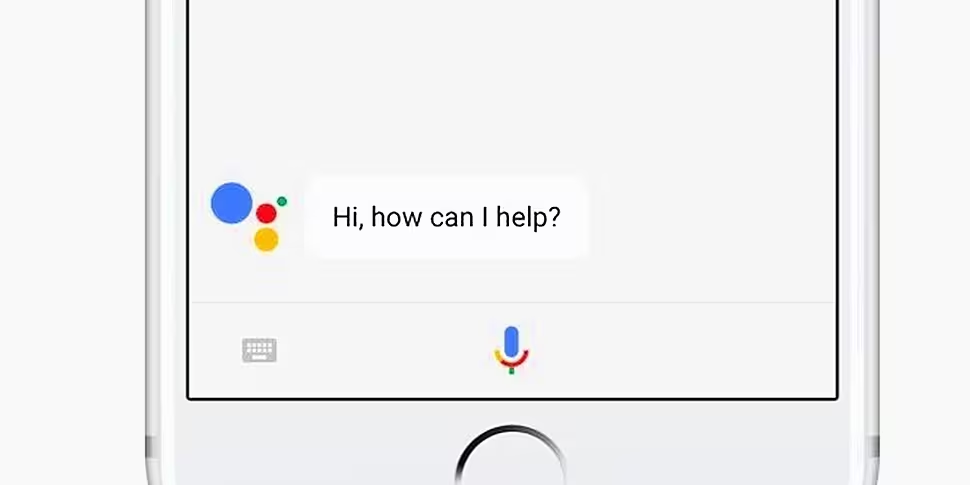Google is betting big that voice is going to be the computer interface of the future, and to make sure it has a front row seat in that revolution, the search giant is putting its AI-powered Assistant everywhere.
And by everywhere, I don't just mean at the heart of its Android operating system and deeply integrated into apps like Photos and Maps — or powering its smart speaker Home. No, to ensure that Assistant has as wide a reach as possible, Google is now making its Assistant
No, to ensure that Assistant has as wide a reach as possible, Google is now making its Assistant available on the iPhone.
Apple of course already has Siri, but Google believes that its technology is superior and therefore believes it can convince iPhone users to switch from saying “Hey Siri” to “OK Google” and in turn ensure that it gobbles up as much of our data as possible.
The move was announced during the opening keynote of Google I/O, the search giant’s annual developer conference in Silicon Valley on Wednesday evening.
Assistant was the star of the 90-minute presentation which is nominally aimed at developers, but which played much more to the end-user this year.
What about Android?
An indication of the backseat Google gave to Android — the world’s biggest smartphone operating system, currently powering 2 billion devices — was the fact that it wasn’t even mentioned until 75 minutes into the 90-minute presentation.
This is a significant shift for Google and indicates that while voice is far from becoming ubiquitous, it is clearly where Google sees computing moving in the future.
Jan Dawson, chief analyst with Jackdaw Research, believes the keynote “was reflective of a shift we’ve seen from Google in recent years, in which it’s de-emphasized the core Android operating system while shifting focus to individual apps that run on top of it.”
And the app which is most important to Google today is Assistant.

The reason Google is shifting focus away from Android and onto services like Assistant — as well as Google Photos and the new augmented reality Google Lens app — is that Google has lost control of Android. The manufacturers and networks now control the upgrade cycle and push their services on top of the core Android experience.
By expanding the reach of Assistant beyond just Android devices, Google is hoping that it will continue to attract new users and therefore continue to help it grow its own core business — selling ads.
The more Google knows about its users, the better it is at selling ads. This is why Google requires users to sign in with a Google account to use the service. Even on the iPhone where Google could access Apple’s contacts and calendar app data, it chooses not to, focusing instead on its own ecosystem of apps.
Available on all your devices
Assistant on the iPhone won’t be the same experience as Assistant on Google’s Pixel phones. You can’t just say “OK Google” and have the app launch; you will need to manually tap on it.
But once you do, the range of things you can do is much wider. You can ask it to translate words into any language you like; you can get it to play movies on your Chromecast-connected TVs; you can type questions rather than speak them, and you can even ask it to sing.
Now available on 100M+ devices, your #GoogleAssistant is your own personal Google, always ready to help. #io17 pic.twitter.com/MwlKhtgL6M
— Google (@Google) May 17, 2017
But smartphones are just the start for Google Assistant. As I mentioned, Assistant powers Google Home, the smart speaker that allows you play music and control smart home devices with your voice. At Google I/O on Wednesday the company announced it was adding the ability to make calls through Home (though only in the US and Canada initially) as well as support for a wider range of services and hardware.
Assistant is also available on smartwatches running Android Wear 2.0; it is coming to Android TV; and will soon be deeply integrated in the embedded in the consoles and infotainment systems of cars from Volvo and Audi.
Just as we saw dozens of hardware manufacturers integrate Amazon’s Alexa into their products earlier this year, expect to see “Powered by Google Assistant” on even more devices — from speakers to fridges, TVs, ovens and everything else in your smart home.
Google foresaw the move away from desktop computing and towards mobile, and with Android, it has come to dominate that world. Now it clearly sees another shift, away from tapping and typing and towards voice. With Assistant Google is hoping to continue to dominate our computing lives.









